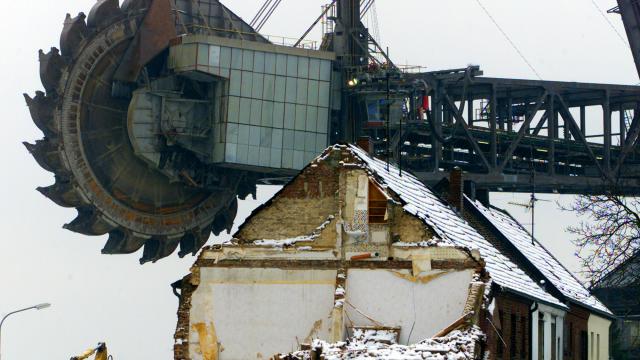Most of us think of Germany as one of the most energy-progressive countries in the world. But in recent years, it’s also increased its dependence on a form of energy that’s anything but clean: coal. And it’s demolishing or relocating entire towns to get at it.
While Germany has some of the largest brown coal deposits on Earth, a valuable chunk of it resides underneath towns that date back to the Middle Ages. Most of these are located in the old East Germany, and in the 1930s and 40s, dozens of them were destroyed to make way for mining. The practice ended when Germany established its clear energy initiatives. But now, dirty brown coal reemerging as a cheaper option than clean energy. And the cities are in the way again.
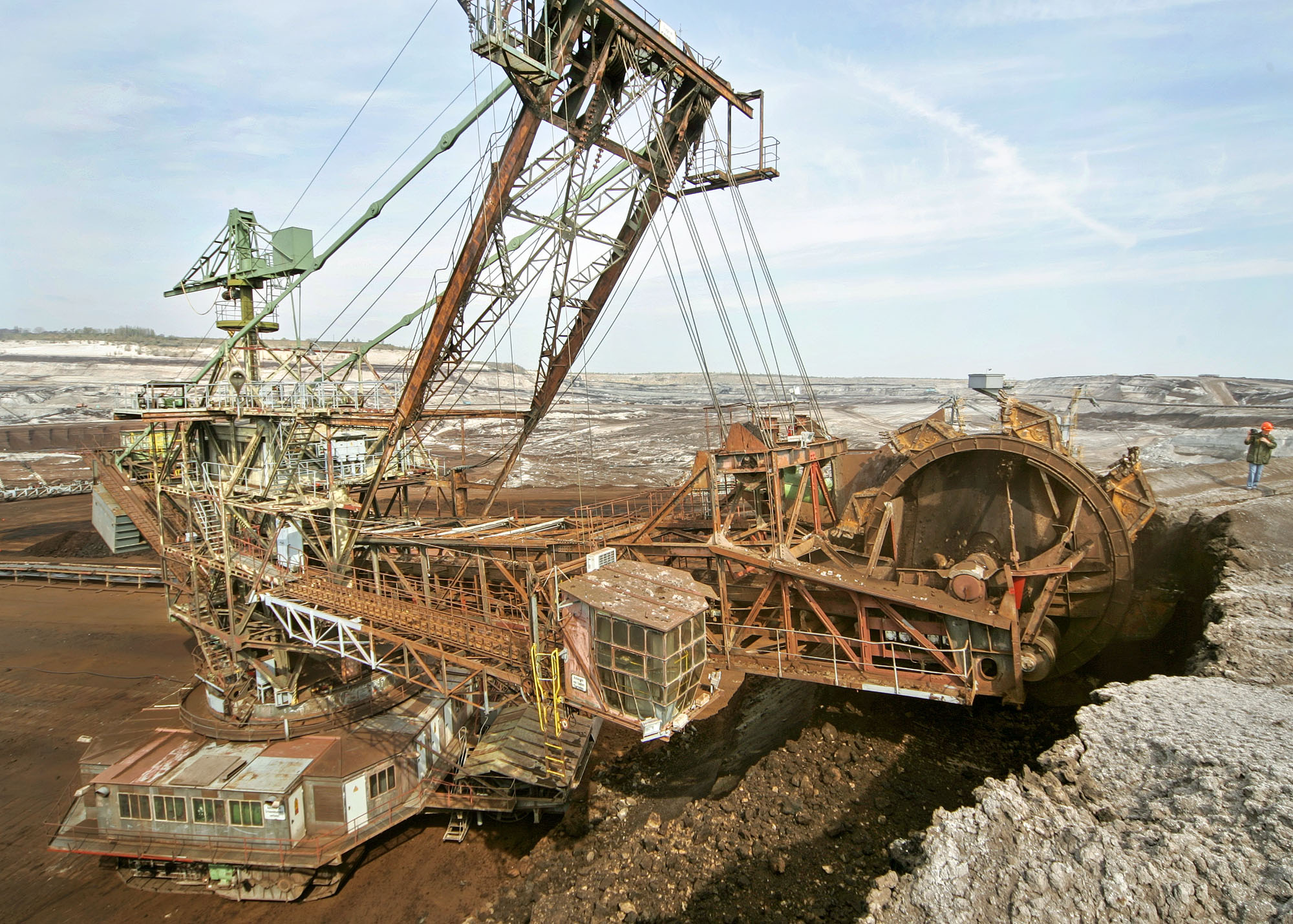
A blade wheel excavator works at the surface mining Profen of the Central German Lignite Corporation (MIBRAG) southwestern of Leipzig, eastern Germany. AP Photo/Eckehard Schulz.
There’s the small town of Atterwasch, which National Geographic reports is now on the doomed list thanks to the rich supply of brown coal that sits beneath it. Or Proschim, a 700-year-old village that’s on the chopping block as well. Or Magdeborn, whose church now sits in the middle of a lake created by an open-pit mine:
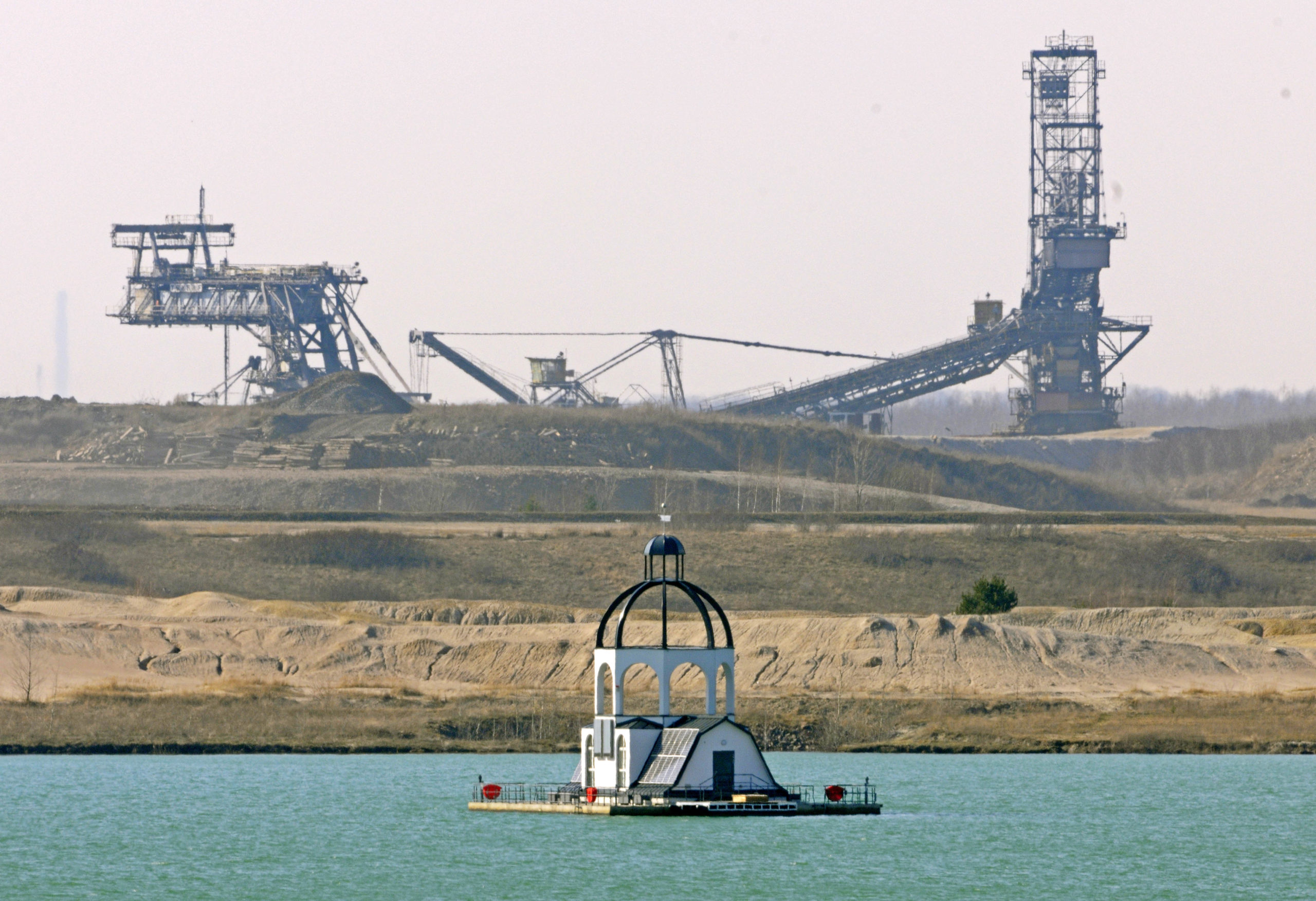
Vineta Church is anchored on an artificial lake created after open cast mining passed through the region. AP Photo/Jens Meyer.
The same story goes for towns in Poland and Czech Republic, too. At the Czech pit mine of Horni Jiretin, pits mines have almost consumed a Baroque castle where Beethoven premiered the symphony Eroica:
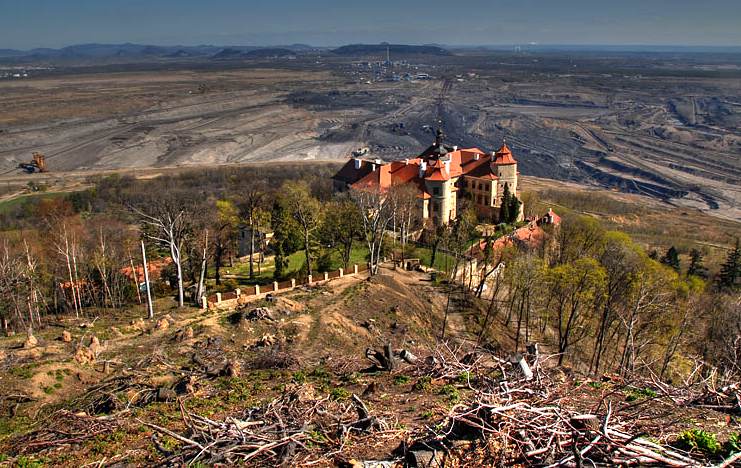
Image via.
How is this brown coal actually mined? It’s pretty simple — a giant bucket digger, like the one seen in the lead photo above, is used to cut wide swatches of dirt away from the coal deposits underneath:
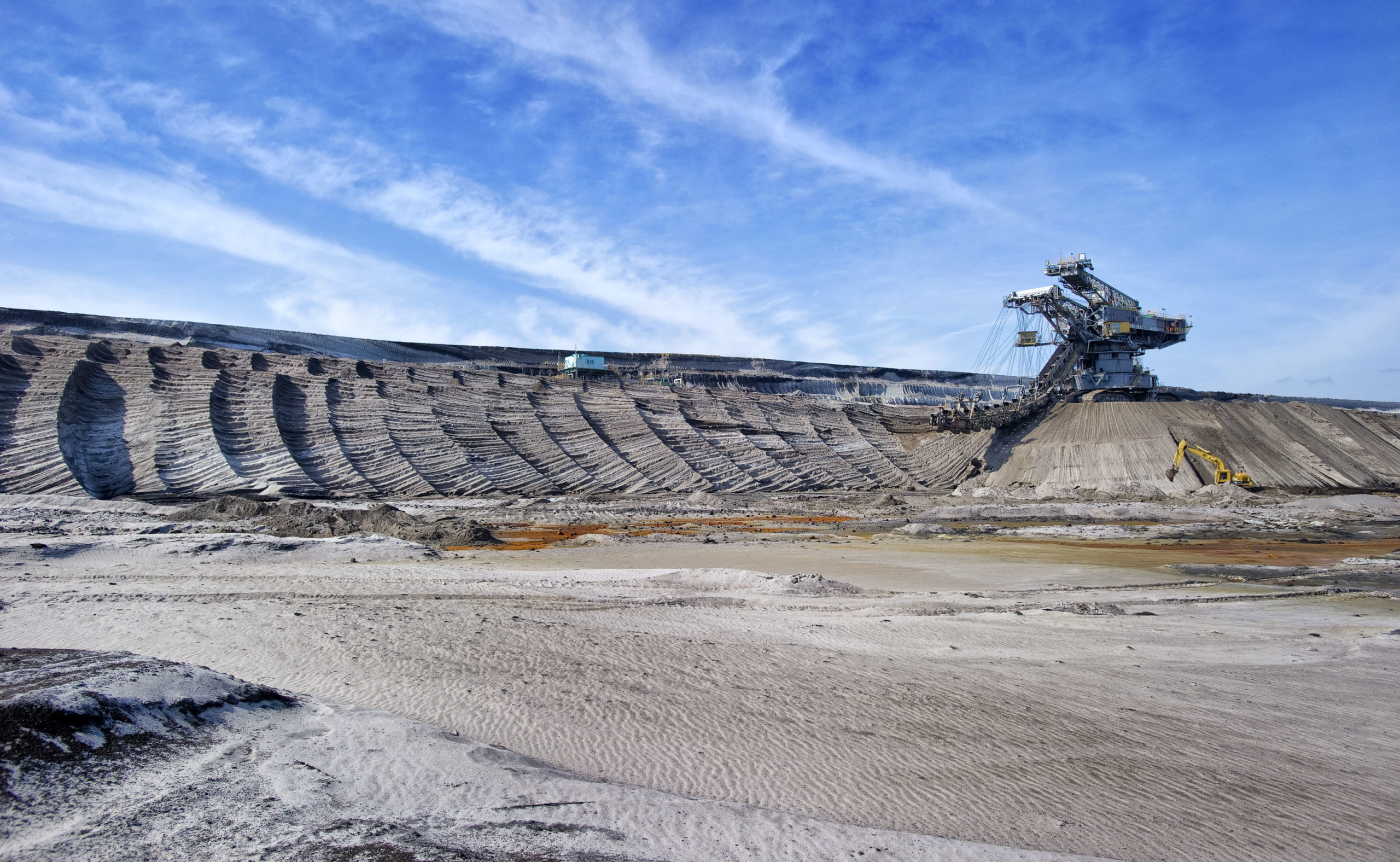
A bucket-chain dredger mines overburden in the surface mining “Vereinigtes Schleenhain” of the Central German Brown Coal company MIBRAG, south of Leipzig, eastern Germany. APN Photo/Eckehard Schulz.
Then it’s just a matter of getting the stuff — millions of tons of it — onto conveyor belts for processing. The complex part is the sheer scale of the operations, which involves some of the largest bucket diggers in existence.
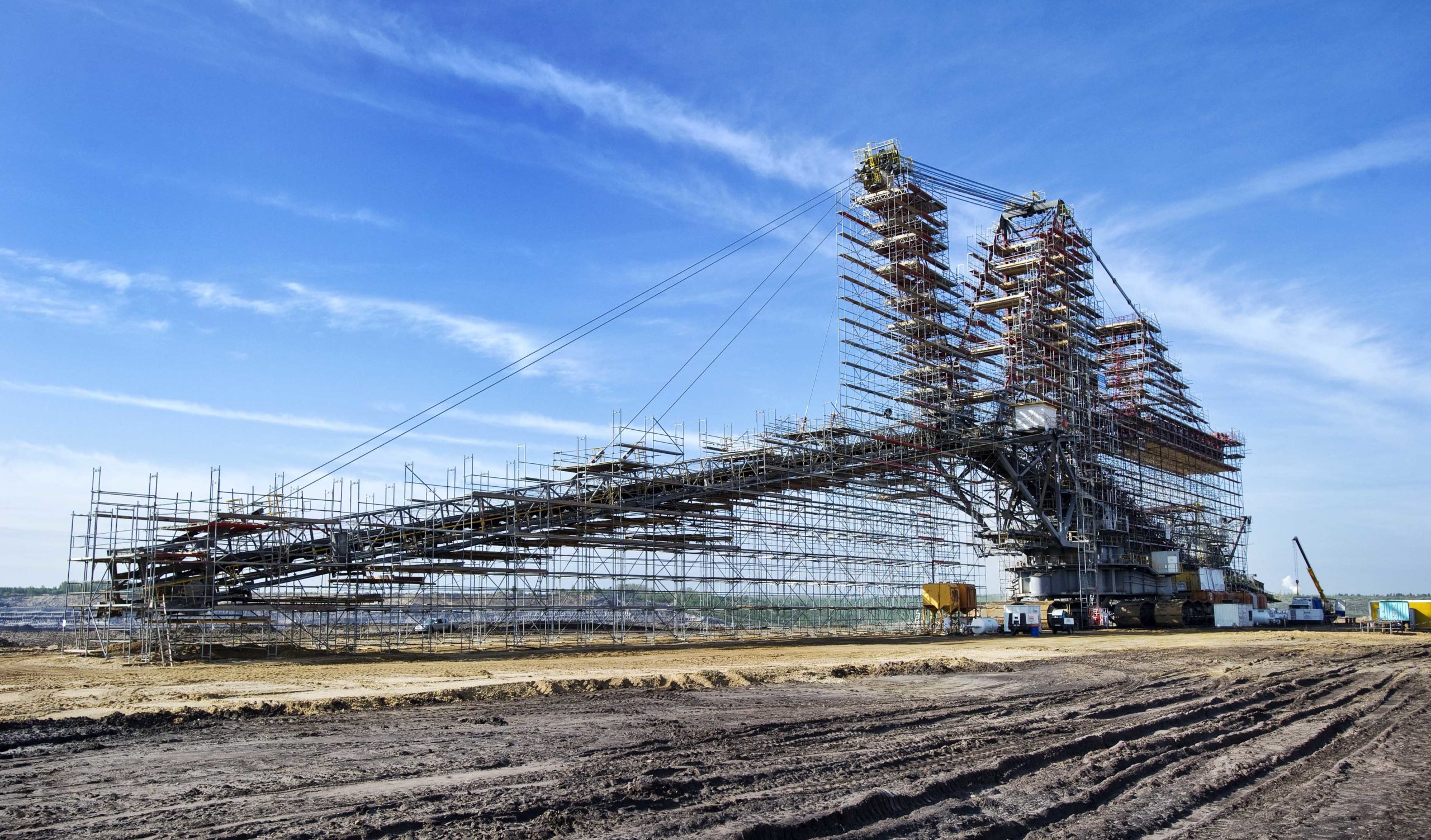
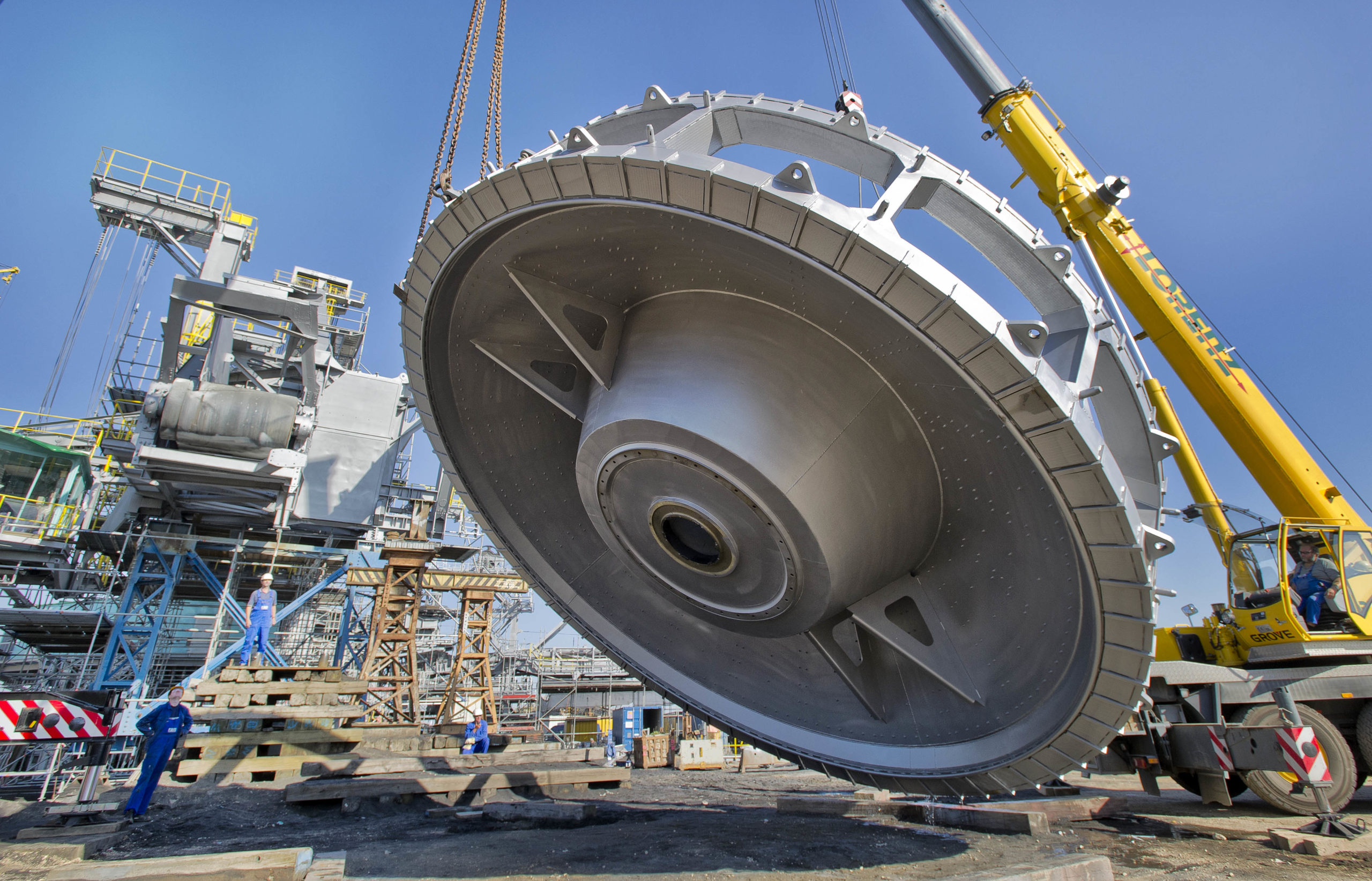
Top: A view at a spreader surrounded by scaffolding for refurbishment. AP Photo/Eckehard Schulz. Bottom: An excavator in the surface mining Vereinigtes Schleenhain of the Central German Brown Coal company MIBRAG, south of Leipzig, eastern Germany. APN Photo/Eckehard Schulz.
In some ways, it’s ironic. Germany, and Europe, in its race to decrease its dependence on dirty forms of energy, has opened up a market gap that’s being filled by one of the dirtiest of all. And centuries of history wind up as collateral damage. [National Geographic]
Lead image: A giant paddle wheel of a bucket excavator of the nearby lignite mine is seen at a demolition site at Elsdorf, near Cologne, western Germany. AP Photo/Frank Augstein.
